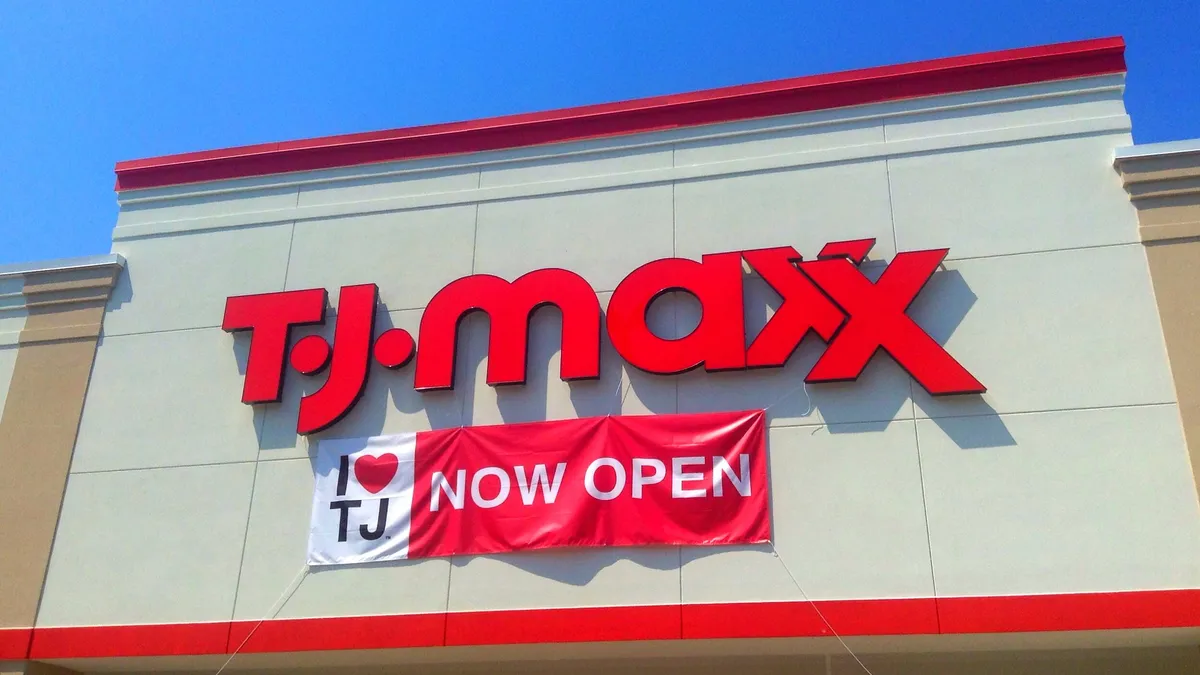Dive Brief:
- An influx of high-quality inventory at off-price giant TJX Cos. helped push the retailer’s comparable sales up 4% in Q4.
- On a call with analysts, CEO and President Ernie Herrman noted that top-line struggles of e-commerce businesses as well as store closures in the retail industry have had a positive impact on TJX’s inventory.
- “Availability of quality branded merchandise is phenomenal,” he said. “We are in a great position to take advantage of the opportunities we are seeing in the marketplace.”
Dive Insight:
Herrman used the word “phenomenal” multiple times to describe for analysts the buying opportunities for TJX, which owns the T.J. Maxx, Marshalls and Home Goods chains. Herrman noted specifically that the brands available to TJX had improved in Q4.
TJX has been a beneficiary of a protracted period of inventory rightsizing in the industry. Retailers and apparel brands have been scrambling for the better part of a year to unload a mountain of product that inflation-wary customers aren’t buying at full price.
As a massive liquidation channel, TJX is there to pick up what others are offloading. The retailer also has the advantage of being a discounter in a period of slackened consumer spending. As Herrman said, “Further, we are convinced that our commitment to value and our treasure hunt shopping experience will continue to serve us well in this environment.”
The CEO thinks the benefits could last, as the retail industry continues to struggle under tougher economic conditions. “One reason I think there's a long sustainability to it is because you're running into a lot of closures and slowdowns with other retailers permanent store closures,” Herrman said, adding that “we are becoming even more important to vendors today than we were even as recently as a year ago.”
Herrman also noted that TJX has some 21,000 vendors feeding the retailer inventory, which includes “a lot of really key relationships with the biggest brands in the industry.”
“I was on the phone recently with two of our biggest vendors, and I think they would all say that we are more important to them today than ever before,” Herrman said.
Inventories on a per-store basis, which includes distribution centers but not inventory in transit, was up 1% YoY at the end TJX’s fiscal year. Balance sheet inventory was down 2%.
J.P. Morgan analysts led by Matthew Boss pointed out in a note last week that TJX’s “outperformance” in sales during Q4 led to “slightly less inventory on hand than anticipated” as well as “a favorable position to flow fresh merchandise to stores this Spring.”














